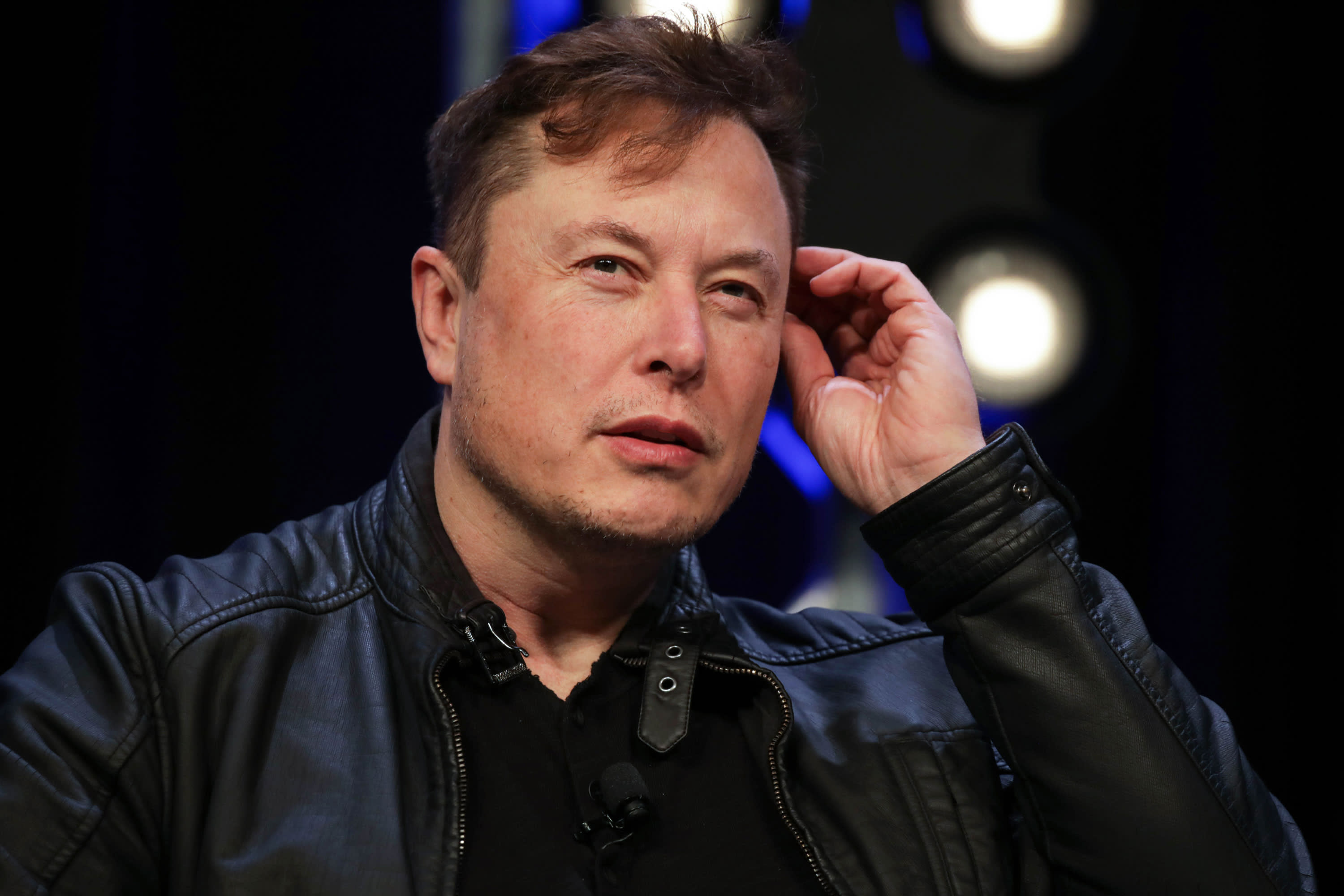
Elon Musk, Founder and Chief Engineer of SpaceX, speaks during the Satellite 2020 Conference in Washington, DC, United States on March 9, 2020.
Yasin Ozturk | Anadolu Agency | Getty Images
Tesla reported fourth-quarter results that came in stronger than expected, but shares fell slightly in extended trading on Wednesday after the automaker warned supply chain issues could persist throughout 2022.
Here’s how the company performed:
- Earnings (adjusted): $2.52 per share, vs. $2.36 per share expected by analysts, according to Refinitiv
- Revenue: $17.72 billion, vs. $16.57 billion expected by analysts, according to Refinitiv
Revenue rose 65% year over year in the quarter, while automotive revenue totaled $15.97 billion, up 71%, according to a statement.
Energy generation and storage revenue was $688 million, which was down 8% and below the StreetAccount consensus of $815.1 million. It was the lowest revenue for that division since the first quarter of 2021.
Net income, at $2.32 billion, was up some 760%, and Tesla said it had a 27.4% gross margin, compared with 26.6% in the previous quarter.
“Our own factories have been running below capacity for several quarters as supply chain became the main limiting factor, which is likely to continue through 2022,” the company said.
CEO Elon Musk alluded to the supply chain issues in a tweet Last November, writing, “Oh man, this year has been such a supply chain nightmare & it’s not over! I will provide an updated product roadmap on next earnings call.”
The report comes in the midst of the most important tech earnings season in years. The Nasdaq has suffered its worst January since 2008 as many investors have begun to sour on the promise of high-growth tech stocks.
In 2021, Tesla delivered 936,172 vehicles, an 87% increase versus 2020 when it reported its first annual profit on deliveries of 499,647. Its 2021 deliveries included 308,600 electric vehicles in the fourth quarter. (Deliveries are the closest approximation to sales reported by Tesla.)
CEO Elon Musk and other execs are expected to give a progress update on the company’s long-delayed heavy duty Semi truck, experimental Cybertruck pickup, and plans for driverless vehicle systems and a $25,000 compact car.
In its shareholder deck, Tesla revealed that it has expanded its experimental driver assistance systems testing program, dubbed FSD Beta, to around 60,000 users in the U.S.
The California DMV and federal vehicle safety regulators at NHTSA are both investigating Tesla’s approach to testing new, and unfinished driver assistance features with customers on public roads in the US.
“Full Self-Driving (FSD) software remains one of our primary areas of focus,” the company wrote. “Over time, our software-related profit should accelerate our overall profitability.”
In its shareholder deck, Tesla also confirmed that Model Y builds began at the new Austin, Texas, plant in late 2021. It will start deliveries from that factory following a certification process.
“We are making progress on the industrialization of Cybertruck, which is currently planned for Austin production subsequent to Model Y,” the company said in a shareholder deck. The Semi remains in development, according to the deck.
Tesla’s first U.S. factory in Fremont, California, achieved record production in 2021, the company noted. Tesla now aims to expand capacity at that facility beyond 600,000 cars per year.




















